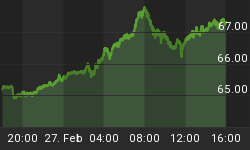Chile’s Chemical and Mining Society (SQM), the world’s second-largest lithium producer, continues to suffer from sustained weak prices and demand for the metal used in batteries that power electric vehicles (EVs) and high tech electronics, with profit falling almost 28% in the three months to Sept. 30.
The Santiago-based lithium giant said net income in the third quarter reached $60.5 million compared to $83.5 million a year earlier, while gross profit reached $134.2 million, lower than the $162.1 million recorded for the same quarter last year.
Chief executive Ricardo Ramos said SQM anticipated the significantly lower average prices, but demand from China, the world’s top consumer of the commodity, was weaker than expected.
“We estimate that the total demand growth in 2019 could be lower than our long-term estimates range of 16-20%, reaching approximately 14%,” Ramos said in a statement, citing “changes in Chinese subsidies and customers decisions to reduce their inventory” as the main factors.
SQM has yet to disclose any economic impact from the massive and, most times, violent protests against economic inequality that have rattled the country in the last month.
Speaking to investors and media on Thursday, Ramos noted the only problems it had faced to date were logistical.
“We’ve had issues of coordination and transportation,” Ramos said. “But it’s not relevant in terms of costs.”
Prices for lithium carbonate, the most common type used in EV batteries, doubled over 2016 and 2017. Since then, they have fallen by more than 40% to around $9.5 per kilo compared to the $18 per kilo mark they hit in May last year, according to S&P Global Platts.
The main factor behind the price slump is the avalanche of new supply that has hit the make over the past year, triggered mainly mine expansions and a cut in government subsidies for purchasers of electric vehicles in China.

Earlier this month, Albemarle (NYSE: ALB), the world’s No. 1 lithium miner, said prices were down by about a third on last year and the industry has two or three times more inventory than needed.
Trying to offset the glut, the company postponed in August plans to add about 125,000 tonnes of processing capacity. It also revised a deal to buy into Australia’s Mineral Resources’ (ASX: MIN) Wodgina lithium mine and said it would delay building 75,000 tonnes of processing capacity at Kemerton, also in Australia.
SQM has also done its part, pushing back a key expansion at its Atacama salt flat operations from the end of 2020 to late 2021.

Despite the efforts, the Chilean miner expects the negative pricing trend continue into 2020.
The South American nation, which holds about 52% of the world’s known lithium reserves, last year lost its top lithium producer crown to Australia.
The country, however, is working on reversing that situation. It predicts that lithium will soon become its second-largest mining asset, behind copper. The commodity is currently the country’s fourth-biggest export.
More Top Reads From Safehaven.com:
















